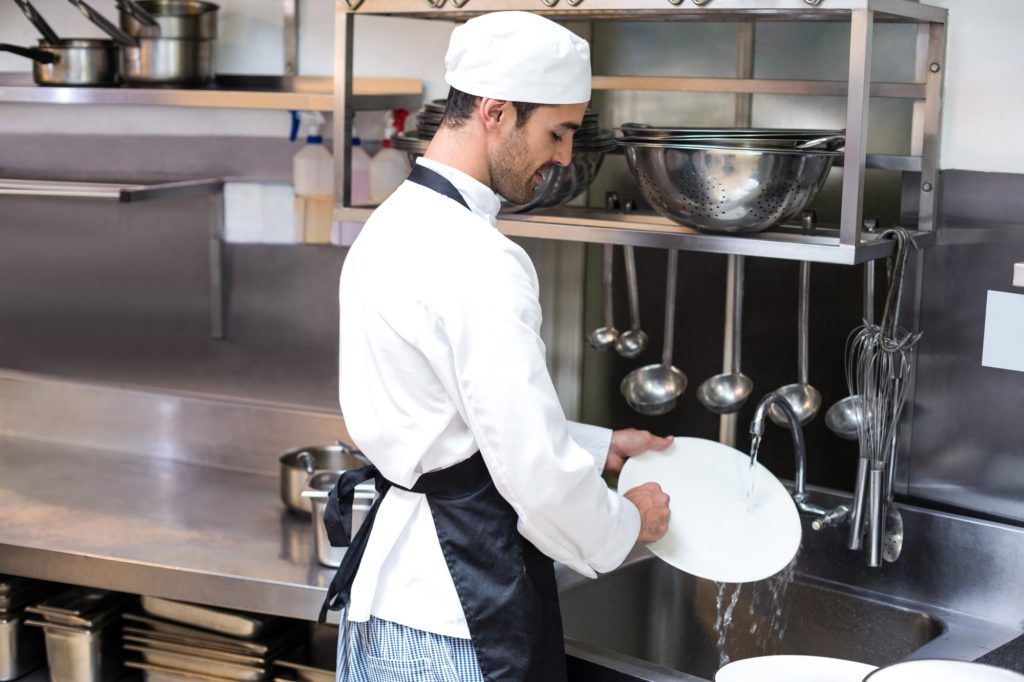
Over 48 million people get sick every year because they’ve contracted some sort of a foodborne illness.
We know that you work hard to keep the kitchen, dining room, and other food prep areas in your home clean.
But if you run a restaurant or another food-based business, then professional kitchen cleaning is especially important.
After all, even a single day of business with contaminated food or a dirty kitchen can make hundreds of people sick.
Of course, it’s also seriously bad for business — how will it impact your online reviews?
So, what should a commercial kitchen cleaning include? And what are some of the cleaning steps that you can handle on your own, and look out for in professional services?
Keep on reading this post to find out.
Sweat the Small Stuff
Let’s start by talking about the finer details of cleaning procedures for a commercial kitchen.
There are often areas that are safe havens for bacteria, dirt, and germs. You might not need to clean these spaces every day. But if they’re left unchecked for too long, your food could be at risk.
In general, take at least one day every month to clean underneath appliances, between your equipment and the wall, the seals of your fridge, and your light fittings.
Also scrub the baseboards of the kitchen, the skirting areas, and completely empty your storage shelves/dish racks and clean up underneath them.
Remember that the kitchen itself isn’t the only area that needs to be cleaned.
Tons of germs live on the salt and pepper shakers, the seats of your chairs, and even on napkin holders.
Disinfect these items about once every week or so for best results.
Finally, always make sure that you keep your commercial range sparkling. You should clean it at the end of every business day.
When you’re on the hunt for a good commercial oven cleaner, it’s best to steer clear of products that contain alkaline or caustic materials. To avoid damaging your oven or range, we also suggest that you avoid a scouring pad.
Instead, use a classic sponge or even paper towels/disinfectant wipes.
Before you head home for the night, make sure that you toss out the contents of the grease tray.
Clean Exhaust Fans and AC Units
One of the most essential commercial kitchen cleaning steps — that’s also among the most overlooked?
Taking the time to completely clean your exhaust fans and general heating and cooling units.
First of all, you’ll be able to extend the life of your fans by performing proper maintenance.
But remember that foodborne illnesses and other viruses travel through the air. If you keep the tools that circulate your air clean, your restaurant will be much more likely to pass that upcoming health code inspection.
Plus, keeping these areas spotless will also prevent the growth of mold, which, if left unchecked, could even lead to your restaurant getting shut down.
Make it a point to frequently change out your filter, and keep your nose open for any rotten or burning smells.
Doing this will help to keep your customers at a comfortable temperature while they enjoy the delicious meals that you have to offer them!
Looking for additional advice about keeping your exhaust fan clean?
See more on the Brooklyn Fan website.
Don’t Neglect Your Garbage Can
Don’t think that taking the time to properly clean out your garbage can really makes all that much of a difference?
Think again.
First of all, these garbage bins are heaven for bacteria and germs. Even the handles and the inside of the bin can be home to countless germs and other filth.
And if you don’t clean up pieces of food or liquids that have slipped out of a broken bag and into the bottom of the bin?
You’ll notice a smell, and may even be faced with moldy, rotten food.
That can easily contaminate your food, your countertops, and even your appliances.
First of all, always make sure that you’ve properly trained your team members on how the trash should be sorted and taken out. We highly encourage you to look for a local homeless shelter that accepts extra food as donations.
But most importantly, make sure that you rinse out your large trash bins at least once a week. Start by running warm water in it, to get rid of any excess food.
Then, let the containers air dry by turning them upside-down.
You may want to spray them with a disinfectant, and let that sit for twenty minutes.
Then, clean the exterior of any trash cans.
Make sure that you also clean up the area underneath and behind your trash cans for the best results.
Use These Commercial Kitchen Cleaning Tips to Keep Customers Happy
From understanding how to properly clean your stove to making sure that you keep your garbage cans safe from contamination, we hope you’ve enjoyed these commercial kitchen cleaning tips.
Remember that, although keeping your kitchen clean will require some serious elbow grease, the last thing you want is for the health department to shut you down.
Of course, keeping your kitchen in good shape is hardly the only thing you need to consider to keep your restaurant running.
You’ll need to think about the right staff, advertising, POS software, and much more.
We’ve got you covered.
Be sure that you keep on checking back with our website for more of the best tips for your business.

